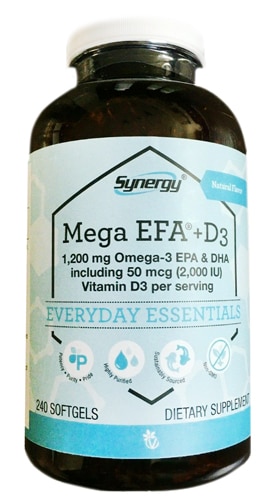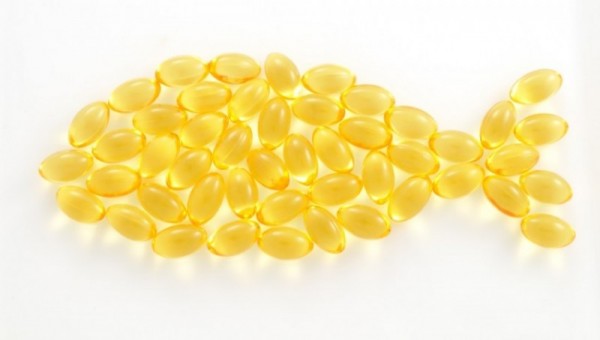Q: What is fish oil?
A: We're glad you asked! Fish oil is derived from the tissues of oily fish. The oil acts as a carrier for fatty acids, such as the ever-so-important omega-3s. EPA (eicosapentaenoic acid) and DHA (docosahexaenoic acid) are two of types of omega-3s, which are considered essential fatty acids. What makes them "essential" is the fact that our bodies don't produce these nutrients and can only obtain them from food or supplements.
Q: Fish oil benefits: how can it help me?
- Happy hearts: By helping support triglyceride levels, EPA and DHA are heart-health powerhouses.* The American Heart Association recommends eating at least two 3.5-ounce servings of fatty fish twice a week.
- More smiles: These fatty acids have unique functions in the body, which can potentially mean a more balanced mindset and healthy mood.*
- Brain power: DHA is most often acclaimed for its role in cognitive function and development.* DHA is a major component of brain cell membranes and makes up the vast majority of the omega-3 fatty acid content in our brains. This is primarily why prenatal DHA and baby DHA are popular supplements for new moms.
- Free motion: These two most-studied fatty acids are wildly known to have a positive impact on joint mobility, flexibility and overall comfort where bone meets bone.*
Q: Are there benefits of taking supplements versus eating fish? What if I'm vegan or don't eat fish?
A: There's no doubt that consuming fish high in EPA and DHA -- such as salmon, anchovies, sardines and mackerel -- is an excellent way to get enough essential fatty acids. That being said, supplements can suffice when you know what to look for.
Fresh, high-quality fish oil supplements undergo a purification and distillation process to ensure mercury, PCBs and other toxins are reduced or eliminated. These potentially harmful compounds are commonly found in fish that inhabit polluted waters.
For vegans and dieters who choose not to consume fish or fish products at all, you don't have to feel left out. Various plant, seed and nut sources contain the fatty acid alpha linolenic acid (ALA), which our bodies can convert into EPA and DHA. Chia seeds, flax (seeds or oil) and algae are a few of the best non-fish sources that provide omega-3 fatty acids.
With February being Heart Health month, it's an ideal time to incorporate fish oil into your daily routine. Though you can obtain your omega-3s from food sources or supplements, it may be best to find a balance between consuming omega-rich foods and taking supplements with a high potency.
*These statements have not been evaluated by the FDA. These products are not intended to diagnose, treat, cure or prevent any disease.




